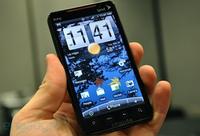-
Iridium offers emergency response service on satellite phone
Iridium offers free SOS service on its Iridium Extreme satellite phone; individuals who need emergency help can now maintain contact with an operator during the emergency rather than rely on one-way SOS alerting
-
-
New severe-weather alert service launched
Reddaway has announced a new Service Alert process that will inform customers about situations that may impact their supply chain
-
-
CBP buys new risk management tool
Customs and Border Protection (CBP) Office of Technology Innovation and Acquisition (OTIA) is replacing existing risk management systems with a product from a U.K. company to bolster the department’s risk and opportunity management capabilities
-
-
Safer fertilizer technology

Honeywell will build a facility in California to produce a fertilizer with the agronomic benefits of traditional nitrate-based fertilizers, but with significantly lower explosive potential; the new fertilizer was independently tested, with guidance from the DHS and the Bureau of Alcohol, Tobacco, Firearms and Explosives, and demonstrated significantly less or no explosive power
-
-
New Jersey teams with Target for disaster response
During the next major disaster, New Jersey emergency responders will receive assistance from the big box retailer Target; last week the company announced that it had officially teamed up with New Jersey’s Office of Homeland Security and Preparedness to assist state and local officials in the event of a major disaster or terrorist attack
-
-
Lockheed Martin UK opens its U.K. cybersecurity center

Lockheed Martin UK has officially opened its first Security Intelligence Center (SIC) at Farnborough; the role of the SIC will be detection, identification, and response to information security incidents; this is accomplished by bringing together three primary capabilities: pervasive sensors, data management, and analyst collaboration
-
-
Real disasters hurt annual national disaster drill

This year the federal government’s annual nationwide disaster drill was hampered by actual disasters; due to an unusually severe series of natural disasters across the country, several states, local agencies, and federal employees were unable to participate in the Federal Emergency Management Agency’s National Level Exercise as they were too responding to real emergencies
-
-
Increased use of UAVs leads to new job opportunities
The growing importance of unmanned aerial vehicles (UAVs) is producing new job opportunities across the United States, with more likely to come as drones enter the civilian realm; the Association for Unmanned Vehicle Systems International estimates that 23,000 jobs could be added over the next fifteen years if drones are allowed in U.S. skies
-
-
DHS to equip border agents with new body armor
The Customs and Border Protection buys $48,629,750 worth of personal body armor from North Carolina-based KDH Defense systems
-
-
Some smartphones are more vulnerable to attack

New research shows that some smartphones specifically designed to support the Android mobile platform have incorporated additional features that can be used by hackers to bypass Android’s security features, making these phones more vulnerable to attack
-
-
Raytheon tests smallest air-launched weapon in its portfolio

Unmanned vehicles continue to evolve, and defense contractors build munitions form them; Raytheon has completed captive carry tests of its Small Tactical Munition Phase II configuration, paving the way for flight tests
-
-
Admiral Thad Allen joins Booz Allen as senior vice president
On Monday defense contractor Booz Allen Hamilton named Admiral Thad Allen (USCG-Ret) as a senior vice president. The distinguished Four-Star Admiral and former Commandant of the Coast Guard is best known for his roles in managing the federal responses to Hurricane Katrina and the Deepwater Horizon oil spill
-
-
Five years after E.coli outbreak, California farmers still struggling
Farmers in Salinas Valley, California, the “salad bowl of the United States,” are still struggling to regain consumers’ trust five years after spinach grown and bagged on a local farm was linked to a deadly E. coli outbreak that killed three people and sickened 206
-
-
Chinese rare earth embargo would be “disastrous,” says mining executive
Mike Parnell, the CEO of U.S. Rare Earths, Inc., recently took the time to chat with Homeland Security NewsWire’s executive editor Eugene K. Chow; in the interview Parnell discusses the potential consequences of a full Chinese rare earth metal embargo, efforts to develop alternatives to rare earth metals, and the progress made in making the drilling process more environmentally friendly
-
-
British law enforcement exploits flaw in iTunes to spy

British law enforcement agencies and Apple are coming under sharp criticism after it was discovered that authorities exploited a security flaw in iTunes to spy on individuals
-
More headlines
The long view
Factories First: Winning the Drone War Before It Starts
Wars are won by factories before they are won on the battlefield,Martin C. Feldmann writes, noting that the United States lacks the manufacturing depth for the coming drone age. Rectifying this situation “will take far more than procurement tweaks,” Feldmann writes. “It demands a national-level, wartime-scale industrial mobilization.”
Trump Is Fast-Tracking New Coal Mines — Even When They Don’t Make Economic Sense
In Appalachian Tennessee, mines shut down and couldn’t pay their debts. Now a new one is opening under the guise of an “energy emergency.”
Smaller Nuclear Reactors Spark Renewed Interest in a Once-Shunned Energy Source
In the past two years, half the states have taken action to promote nuclear power, from creating nuclear task forces to integrating nuclear into long-term energy plans.
